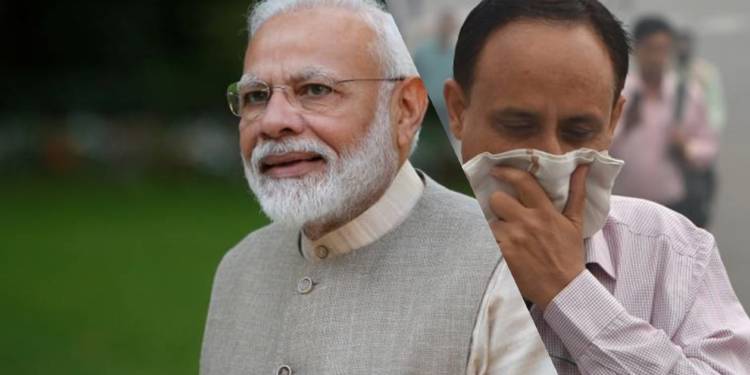The blanket of haze over Delhi thickened on Friday morning with the national capital’s pollution levels increasing overnight by around 50 points, taking the overall air quality index to 459. One of the biggest causes of thick toxic smog engulfing North India every winter is stubble burning. In the month of October-November, farmers typically harvest rice to sow wheat. After harvesting the crop, farmers often set the leftover plant debris on fire to clear fields for the next round of sowing, a practice known as stubble burning which has become a major threat to air quality and human health. Punjab and Haryana are the major contributors to stubble burning pollution. With the precarious situation prevailing in the capital city, the Delhi Government has closed all schools in the city till Tuesday.
Many of India’s cities, including Delhi, continue to be among the most lethally polluted cities in the world. Air pollution has emerged as the largest environmental risk factor, responsible, according to a recent study by the World Health Organisation, for the three million deaths worldwide. Studies have suggested that air pollution resulted in a three-year reduction in the lifespan of 660 million Indians. And therefore it is high time that the Central government led by Prime Minister Narendra Modi taking a leaf out of the success of ‘Swachh Bharat Mission’ start a similar campaign for fighting the ever-increasing air pollution in the country or if possible, clean air must become an essential part of the broader horizon of Swachh Bharat Mission (SBM).
According to a study released by the United Nations Children’s Emergency Fund (UNICEF), PM Modi’s flagship scheme, Swachh Bharat Mission has reduced groundwater contamination in many villages in India. The UNICEF study is based on ground reports from the three states of Bihar, Odisha and West Bengal. The study said that groundwater samples suggested that as compared to open defecation free villages, the villages not free of open defecation were 11.25 times more likely to have their groundwater sources contaminated with faecal matters.
Swachh Bharat Mission, one of the most successful schemes of the Modi government has helped the country in reducing the infant mortality rate in the country. According to a report by United Nations Inter-agency Group for Child Mortality Estimation (UN IGME) and reported by TFI post, about 8,02,000 infants (under 5 years of age) deaths were noted in India in the year 2017. This is the lowest reported number of infant deaths in the last five years. In 2016, 8.67 Lakh infants died in the country. Diarrheal deaths which account for more than 8 per cent of the total deaths witnessed a substantial reduction in the last few years due to Modi government’s Swachh Bharat Mission. Poor sanitation and unavailability of safe drinking water is the reason behind 88 per cent of childhood diarrhoea. Although improved sanitation access for children in rural areas due to the success of SBM might have arrested stunting amongst the children but early-life exposure to high levels of air pollution could play spoilsport in realising these benefits, researchers have warned amid calls for strengthening air pollution laws to prioritise health, according to a website Mongabay.
The Modi-government had unveiled its National Clean Air Programme (NCAP) earlier this year aiming at 20-30 per cent reduction of particulate matter (PM) concentration over the next five years, with an overall goal of mitigating air pollution and improving air quality in the country. The programme takes into consideration city-specific action plans for 102 non-attainment cities identified for implementing mitigation actions under NCAP. The fact that high level of pollutants not only damage health but also contribute to global warming should be a reason enough that the government comes up with a large scale campaign that becomes a household name like Swacch Bharat mission. Even though NCAP is quite thorough in its objective, air pollution can only be successfully tackled if every individual in their personal capacity tries to reduce their carbon footprint and the awareness can be brought in through such a mass campaign which like SBM focuses on people.
Consequently, it’s high time that the Modi government pulls its socks and starts working with the common masses to tackle this menace. PM Modi has single-handedly inspired country to clean their surroundings, give up gas-subsidies, open bank-accounts and link Aadhaar cards which shows that the brand Modi is humongous in the country and if PM Modi sets his mind on the issue and starts to talk about it in, say his Mann ki Baat, then millions of people would listen to it and act responsibly.




























